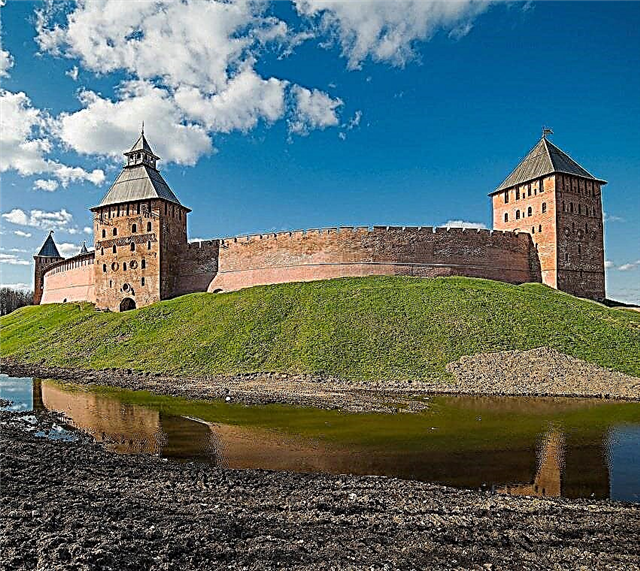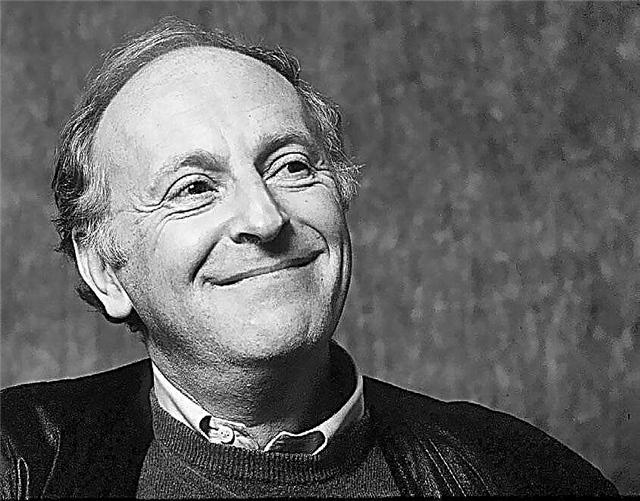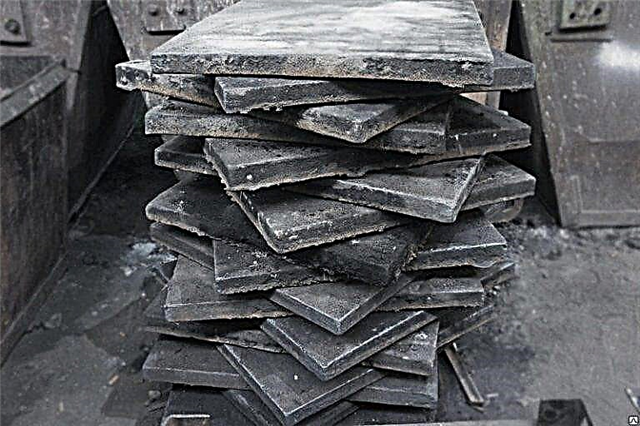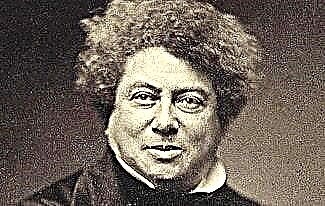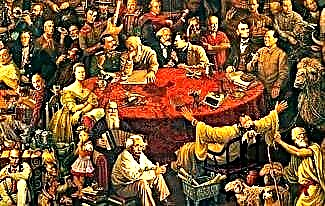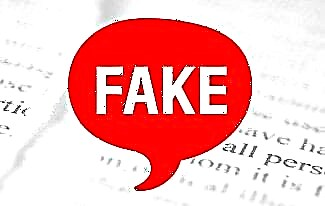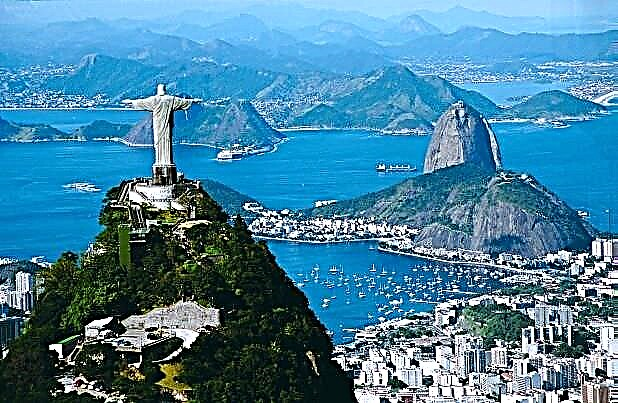Samuil Yakovlevich Marshak (1887 - 1964) was the founder of Soviet children's literature. He was able not to appeal to young readers with the endless magic of fairy tales (although his fairy tales are excellent), not to slip into deep moralizing “The month looks from behind the branches - the month loves smart kids”) and not to switch to simplified children's language. His works for children are simple, understandable, and at the same time always carry deep educational, even ideological motives. And, at the same time, the language of Marshak, devoid of external pretentiousness, is very expressive. This allowed the animators to easily adapt most of Samuil Yakovlevich's work for children.

Marshak became famous not only for children's works. From under his pen came the masterpieces of the Russian translation school. S. Ya. Marshak was especially successful in translating from English. Sometimes he was able to catch rhythms and motives in the poems of Shakespeare or Kipling that are very difficult to find when reading the works of the classics in the original. Many of Marshak's translations from English are considered classics. The writer also translated Mao Zedong's poems from the languages of several peoples of the Soviet Union, and even from Chinese.

The writer had remarkable organizational skills. He created many, as they would say now, “startups”. During the First World War, Samuel helped orphanages. In Krasnodar, Marshak created a theater for children, a genre of which was just emerging in Russia. In Petrograd, he ran a very popular studio of children's writers. Marshak organized the "Sparrow" magazine, from whose collective, in transit through the "New Robinson" magazine, the Leningrad branch of "Detgiz" was born. And in the future he managed to combine literary work with organizational work, and also helped a lot of young colleagues.
1. One of the main biographers of Samuil Marshak, Matvey Geyser, wrote poems in childhood that all his schoolmates liked. Classmates even collected a collection of three dozen poems from girls' albums and school wall newspapers, and sent it to “Pionerskaya Pravda”. From there came a reply with a wish to read more Pushkin, Lermontov, etc. The outraged classmates sent the same poems to Marshak. The writer also returned the entire collection, examining in detail the shortcomings of one of the verses. After such an authoritative rebuff, Glazer stopped writing poetry. After many years he was lucky to visit Samuil Yakovlevich as a guest. Imagine his surprise when Marshak not only remembered boyish poetry, but also read one of Matthew's poems by heart. Leonid Panteleev called Marshak's memory "witchcraft" - he could remember even Velimir Khlebnikov's poems from the first reading aloud.

Matvey Geyser with his own book about Marshak
2. The writer's father, Yakov Mironovich was a capable, but very wayward person. The owners of soap factories and oil mills raced to invite him to manage, but he could not stay in one place for long. Yakov Marshak wanted not to serve, but to own an enterprise in order to realize his inventive ideas, and he did not have money to purchase a factory or a plant. Therefore, the elder Marshak rarely stayed in one place for more than a year, and the family had to constantly move.


Samuil Marshak's parents
3. Marshak's brother Ilya was very inquisitive from childhood, which later allowed him to become a talented writer. It was published under the pseudonym M. Ilyin and wrote popular science books for children. Before the Great Patriotic War, many writers worked in this genre, and the state encouraged it - the Soviet Union needed technically savvy citizens. Over time, the flow of children's popular science books thinned, and now the classic of the genre M. Perelman remains in the memory of the older generation, but he did not develop popular science literature alone. And the pen of M. Ilyin owns such books as "One Hundred Thousand Why" and "Stories about Things".

M. Ilyin
4. The first to appreciate Marshak's talent was the famous critic Vladimir Stasov. He not only praised the boy, but also placed him in the prestigious III St. Petersburg gymnasium. It was in this gymnasium that Marshak received excellent basic knowledge of languages, which allowed him to become an excellent translator. The then Russian translators made translations from English clumsy and tongue-tied. This concerned prose - translations of poetry were generally useless. Even with the names of the characters, it was a real disaster. “Sherlock Holmes” and “Dr. Watson”, whose names we got from those translators, were supposed to be “Homes” and “Watson”, respectively. At the beginning of the twentieth century, there were such variants of the name of the detective as "Holmes" and even "Holmz". And the name “Paul” was worn by English literary heroes named “Paul” back in the 1990s. The magic power of art ... Marshak knew English not as a set of words, but as an integral phenomenon, and in various historical contexts.
Vladimir Stasov. Over time, Marshak became no worse mentor than the critic who gave him a ticket to literature
5. Stasov introduced Marshak in absentia to Leo Tolstoy - he showed the great writer photographs of the young ward and several of his poems. Tolstoy praised the poetry well, but added that he did not believe in “these geeks”. When Stasov told Samuel about the meeting, the young man was very offended by Tolstoy.
6. Maxim Gorky was a significant person in the fate of Marshak. Having met the then young Marshak at Stasov's, Gorky praised the boy's poems. And having learned that he had weak lungs, Gorky literally in a few days arranged for Samuel to be transferred to a Yalta gymnasium, providing him with a residence in his family.

Marshak and Maxim Gorky
7. Until 1920, Marshak was, albeit a young, but a “serious” poet and writer. He traveled to Palestine, studied in England and wrote good sentimental and lyrical poetry everywhere. Marshak began to write for children only while working in a children's theater in Krasnodar - the theater simply lacked dramatic material.
8. The trip to Palestine and the poems written at that time gave rise to the post-Soviet period to declare Marshak a Zionist and a hidden anti-Stalinist. According to certain circles of the intelligentsia, Marshak wrote his works, was in charge of magazines, worked in publishing houses, worked with young authors, and at night under his pillow he wrote anti-Stalinist poems. Moreover, this Zionist was disguised so skillfully that Stalin even crossed out his name from the execution lists. What is typical for this kind of authors - a page after the exploits of Marshak, they describe the omnipotence of the Cheka - NKVD - MGB - KGB. Without the knowledge of this structure, as you know, in the Soviet Union, no one could even stick a needle into a newspaper photo of one of the Soviet leaders with impunity - such actions were immediately declared terrorism and punishable under Article 58. Marshak was receiving Stalin prizes at that time.
9. When Alexei Tolstoy showed Marshak his sketches for the translation of Carlo Goldoni's fairy tale "Pinocchio", Samuil Yakovlevich immediately suggested that he write his own work, using Goldoni's plotline, not to follow the Italian original. Tolstoy agreed with the proposal, and "The Adventures of Buratino" was born. All talk that Tolstoy stole a fairy tale from an Italian has no foundation.
10. Mikhail Zoshchenko, who got into a creative and everyday crisis, Marshak advised to write for children. Later, Zoshchenko admitted that after working for children, he became better at writing for adults. The list of writers and poets whom Samuil Yakovlevich helped in their work also includes Olga Berggolts, Leonid Panteleev and Grigory Belykh, Evgeny Charushin, Boris Zhitkov and Evgeny Schwartz.
11. Once Alexander Tvardovsky borrowed a car from Marshak - his own broke down. Arriving at the garage, Tvardovsky saw a driver he knew well, almost crying over a thick volume. The poet asked Afanasy - that was the name of the driver, a middle-aged man - what was the matter. He said: they were passing by the Kursk railway station, and Marshak remembered that it was there that Anna Karenina passed before her death. Samuel Yakovlevich asked if Afanasy remembered how vividly Karenina saw everything. The driver had the imprudence to inform Marshak that he had never driven any Karenins. The angry Marshak gave him a volume of Anna Karenina and said that until Afanasy reads the novel, he would not use its services. And the drivers' salaries were paid either for the mileage, or for the time on the trip, that is, sitting in the garage, Afanasy earned very little.
12. Marshak's poems were obtained very quickly, but at the same time they were of high quality, and on one quatrain he could spend ten sheets of paper. But even with the revisions taken into account, the speed of writing poetry was fantastic. During the Great Patriotic War, Marshak collaborated with the Kukryniksy (cartoonists M. Kupriyanov, P. Krylov and N. Sokolov). The original idea was that the three artists write cartoons, and Marshak comes up with poetic signatures for them. But after a few days, the principle of work changed: Marshak, after listening to the report of the Sovinformburo, managed to compose a poem, approve it in the appropriate authorities and bring or transfer it to artists who did not even have an idea for a caricature. Marshak's lines "To a fighter makhorka is expensive, smoke and smoke the enemy" were printed on millions of packages of smoking tobacco. For their work during the war years, both Kukryniksy and Marshak were included in the list of Hitler's personal enemies.

The Fuhrer's personal enemies
13. Marshak had a very difficult relationship with Korney Chukovsky. For the time being, it did not come to open skirmishes, but the writers did not miss the opportunity to let go of the taunt towards their colleagues. Marshak, for example, liked to scoff at the fact that Chukovsky, having learned English from a self-instruction manual with the section “Pronunciation” torn out, shamelessly distorted English words. A serious gap, for a decade and a half, came when in Detgiz in 1943 they refused to publish Chukovsky's book "We Will Defeat Barmaley". Marshak, who had previously helped Chukovsky to publish, this time mercilessly criticized the work. Chukovsky admitted that his poems were weak, but he took offense and called Marshak a cunning and a hypocrite.
14. The author of numerous works for children had a childish character. He really didn’t like going to bed on time, and he hated interrupting classes for lunch on schedule. Over the years, eating according to the schedule became necessary - diseases made themselves felt. Marshak hired a housekeeper with a very stern character. Rozalia Ivanovna at the appointed hour rolled the table into the room, not paying attention to what Samuil Yakovlevich was doing or talking to. He called her "Empress" or "Administration".
15. Samuil Marshak, while still in Palestine, married Sophia Milvidskaya. The spouses complemented each other well, and the marriage could be called happy if not for the fate of the children. Nathaniel's first daughter, just over a year old, died of burns after knocking over a boiling samovar. Another son, Yakov, died of tuberculosis in 1946. After that, Marshak's wife fell seriously ill and died in 1053. Of the three children, only one son, Immanuel, who became a physicist, survived.

16.From 1959 to 1961, the current famous Russian journalist Vladimir Pozner, who had just graduated from university, worked as Marshak's secretary. Pozner's collaboration with Marshak ended in a scandal - Posner tried to slip his translations from English into the editorial office of Novy Mir magazine, mixing them with Marshak's translations. The writer immediately kicked out the cunning youth. Years later, Posner presented the unpleasant incident as an attempt to play a prank on the editorial board.
17. In numbers, the creative heritage of Samuil Marshak looks like this: 3,000 of his own works, 1,500 translation works, publications in 75 foreign languages. In Russian, the maximum single print run of Marshak's book was 1.35 million copies, while the total print run of the author's works is estimated at 135 million copies.
18. Samuil Marshak was awarded two Orders of Lenin, the Order of the Red Banner of Labor and the Order of the Patriotic War, 1st degree. He was a laureate of 4 Stalin and Lenin prizes. In all large cities where the writer lived, memorial plaques were installed, and in Voronezh there is a monument to S. Marshak. Another monument is planned to be installed on Lyalina Square in Moscow. The Arbatsko-Pokrovskaya line of the Moscow metro runs the theme train "My Marshak".
19. After the death of Samuel Marshak, Sergei Mikhalkov, who considered meetings with him decisive for his work, wrote that the captain's bridge of the ship of Soviet children's literature was empty. During his lifetime, Mikhalkov called Samuil Yakovlevich “Marshak of the Soviet Union”.
20. Sorting out the belongings and documents left from his father, Immanuel Marshak discovered many recordings on an amateur film camera. Looking through them, he was surprised: wherever his father was in a public place, he was immediately surrounded by children. All right, in the Soviet Union - Samuil Yakovlevich's fame was nationwide. But the same picture - here Marshak walks alone, but he is already covered with children - got on film in London, and in Oxford, and in Scotland near the villa of Robert Burns.


